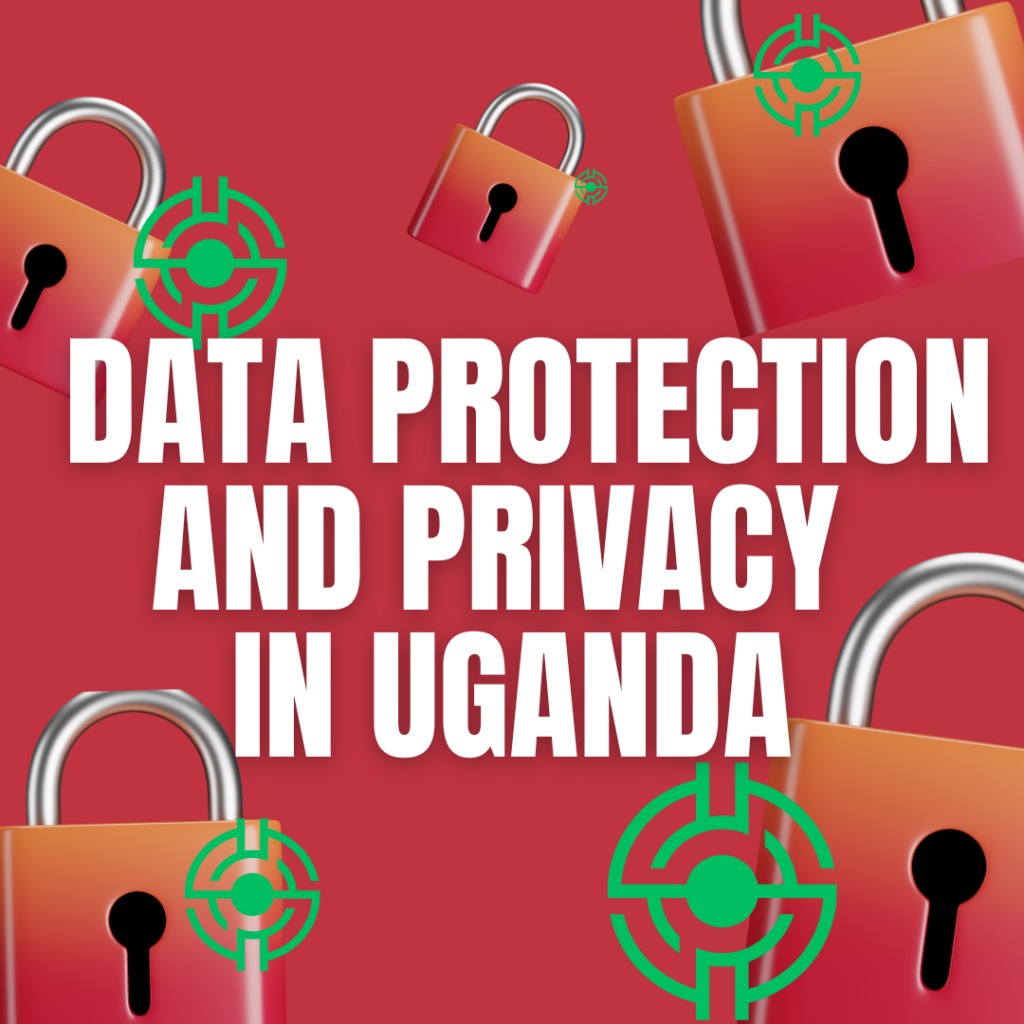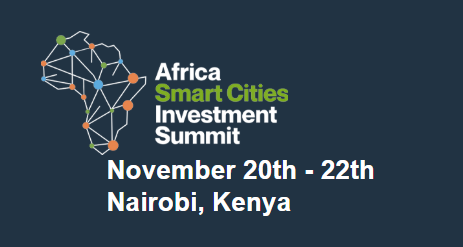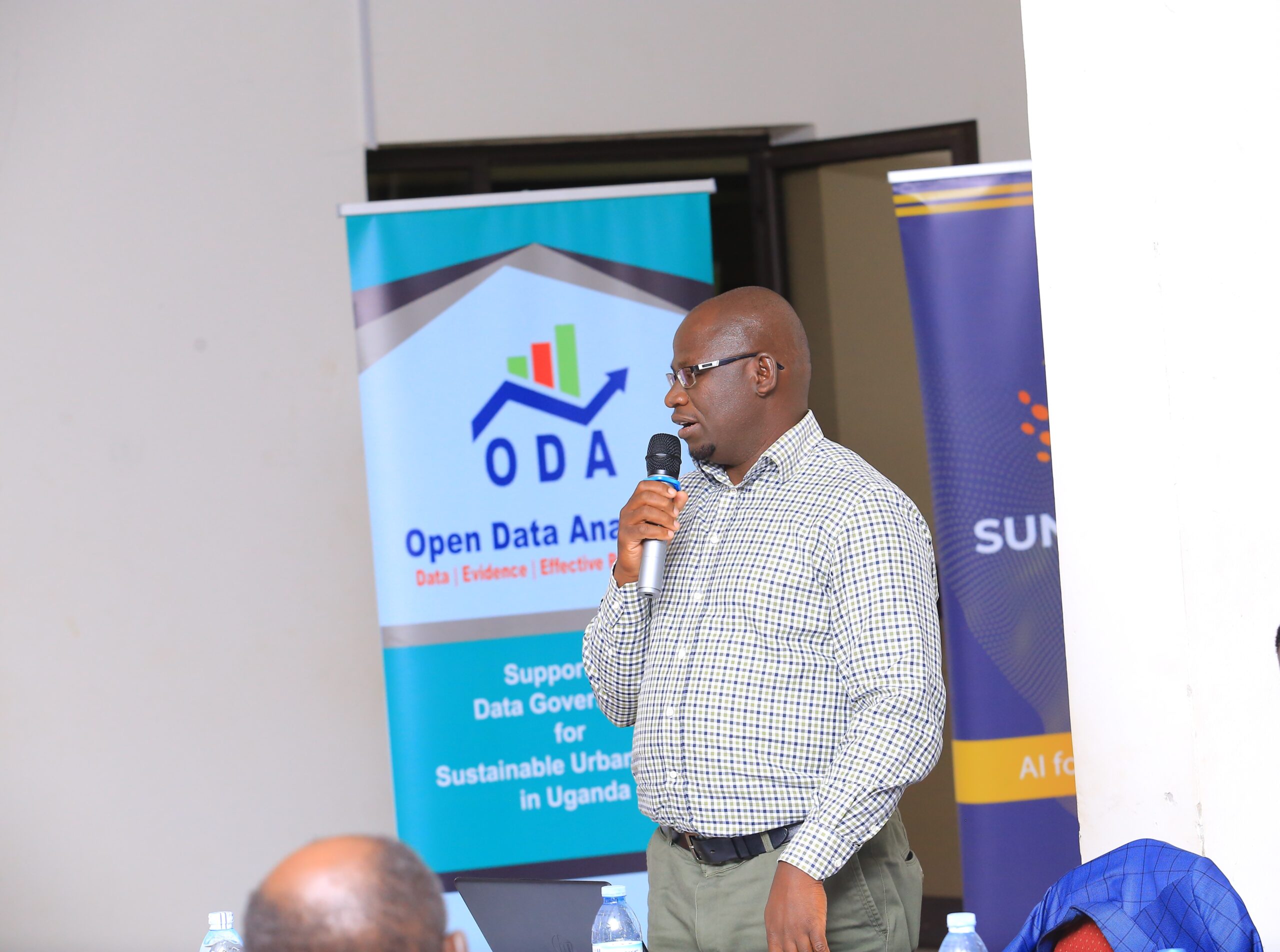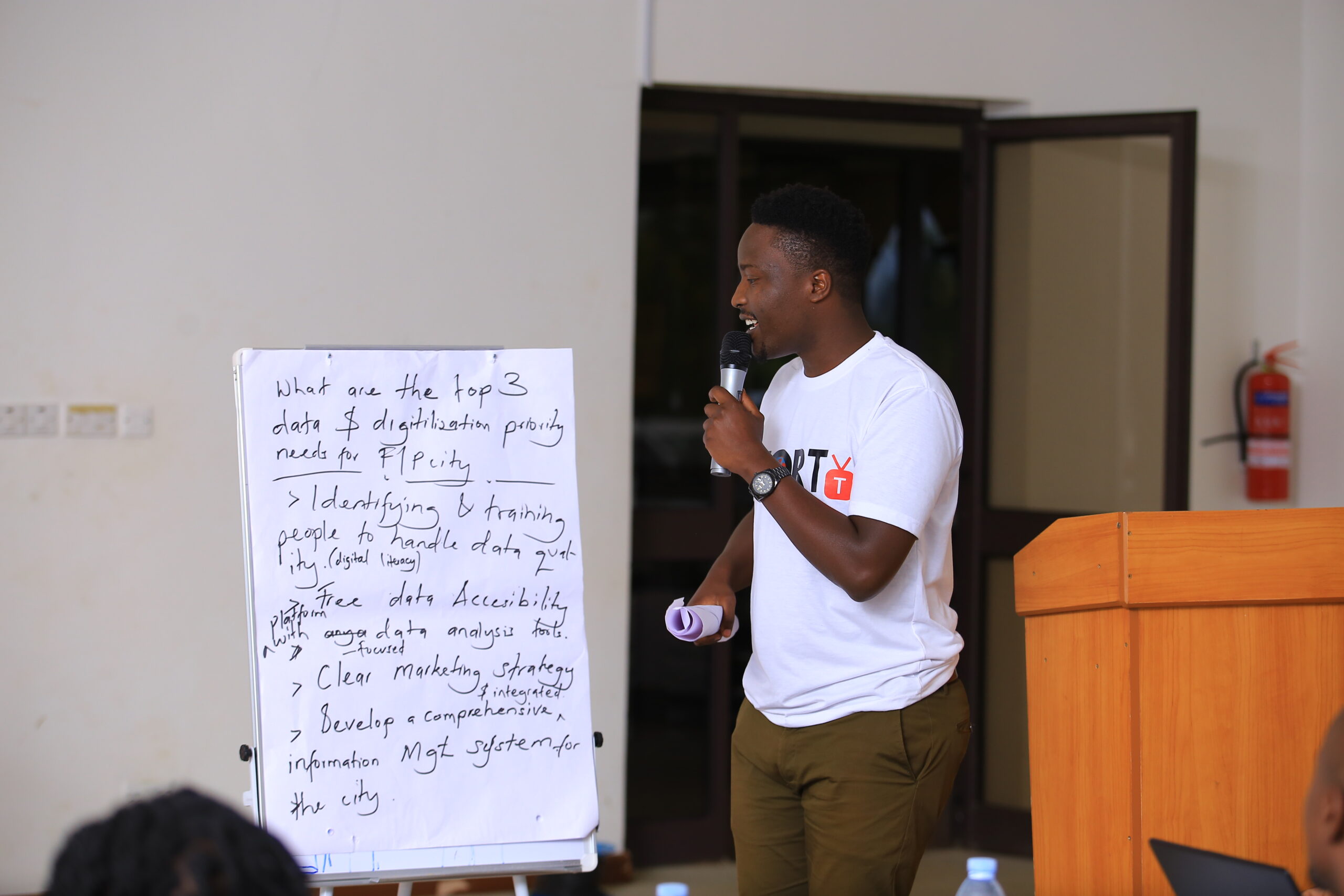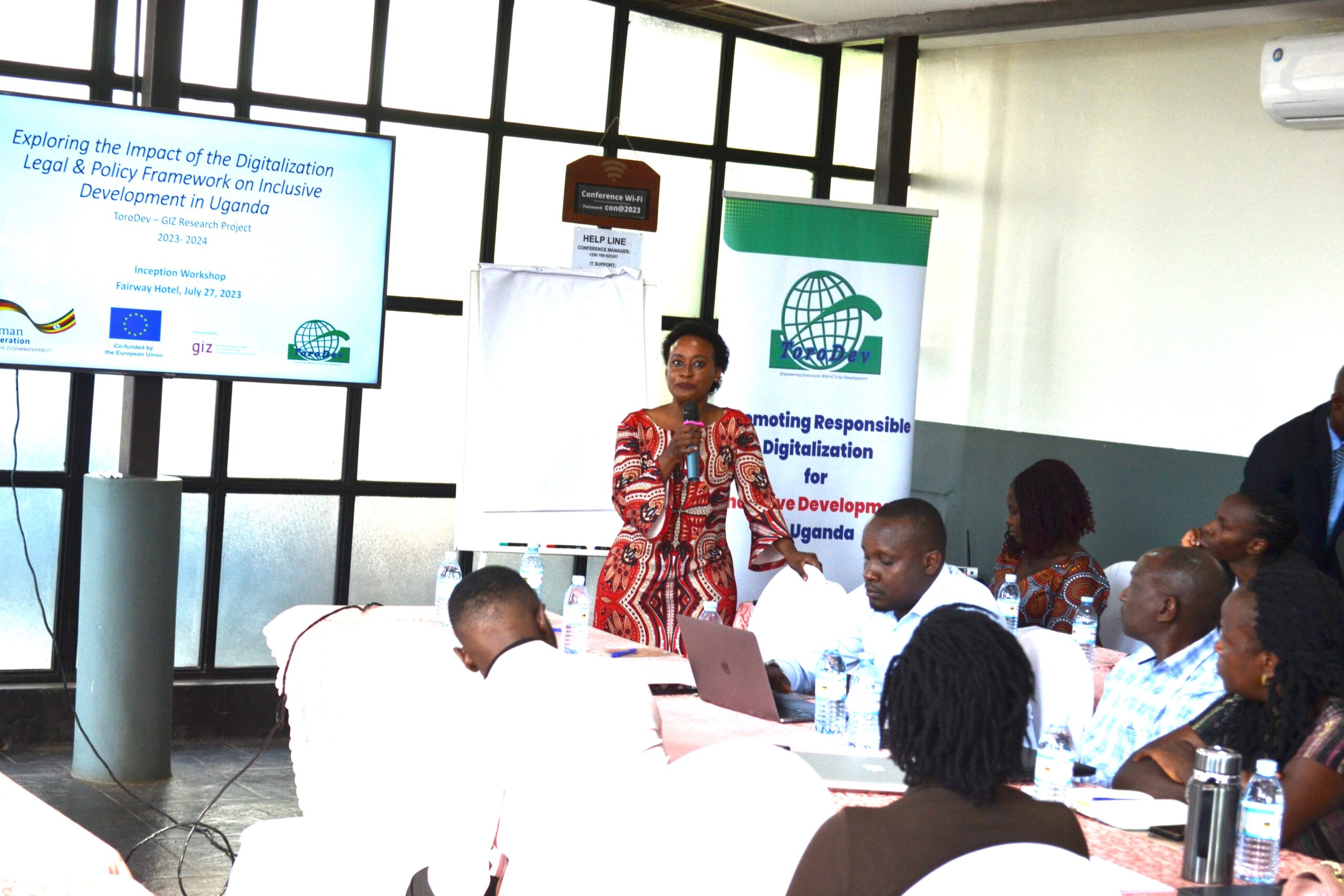Data Protection in Uganda’s Emerging Smart Cities: Building Trust Through Strong Data Governance Regimes.
As Uganda’s key urban centres edge closer to a smart cities’ future, there’s one thing we cannot overlook: data protection within a robust data governance framework for each city. Building smart cities isn’t just about technology, infrastructure, or even economic growth—it’s about fostering trust among residents and other stakeholders. The more we collect, store, and share personal data to enhance urban life, the more essential it becomes to protect residents’ rights through strong data governance.
According to The Baseline Study Report on Lessons from and for Newly Created Cities by Johnstone Baguma and Moses Muhumuza PHD Smart cities rely on effective data protection to navigate the delicate balance between innovation for urban development and privacy. With the right legal, institutional, and operational frameworks, Uganda can ensure that its new cities are not only tech-savvy but also respect and protect the rights of their residents. Here’s how Uganda is making strides in data protection—and what more can be done to ensure trust is at the heart of the country’s smart city agenda?
Uganda’s Legal Foundation for Data Protection
Uganda has a solid legal base that guides data protection in both public and private spheres, setting the ground rules for how data should be handled responsibly and ethically to promote sustainable development. Key laws include:
- Data Protection and Privacy Act (2019): This is the backbone of data protection in Uganda. It outlines what rights individuals have over their personal data, covering everything from consent to access and correction. It’s what compels organisations, including city governments, to manage and protect data responsibly.
- Access to Information Act (2005): This law encourages transparency by giving individuals the right to access information held by public bodies. While it’s about openness, it also underscores the importance of handling data securely and responsibly.
- UBOS Act (1998): Through this Act, the Uganda Bureau of Statistics (UBOS) is tasked with handling official data. Built-in confidentiality clauses are there to ensure that personal data collected for statistical purposes remains private.
These frameworks are crucial for Uganda’s cities as they step into the smart city space. But having laws on paper isn’t enough—they must be put into practice effectively and adapted locally so that they can serve not just the letter of the law but the real needs of city residents.
Institutions and Proposals for Stronger Data Protection
Beyond legal frameworks, the Ugandan data governance fraternity has proposed other institutions and frameworks to make sure data protection isn’t just an afterthought. These entities could work to create awareness, monitor compliance, and build the infrastructure needed to secure data across cities.
- Personal Data Protection Office (PDPO): Under NITA-U (National Information Technology Authority-Uganda), the PDPO enforces the Data Protection and Privacy Act, promoting compliance and educating the public. They play a big role in ensuring data handlers in Uganda know their responsibilities and rights.
- National Urban Data Governance Technical Working Group (Proposed): This group could be key to developing cohesive data governance strategies across all cities. Bringing in representatives from various government sectors working with cities, the working group would focus on cross-sectoral data protection approaches, ensuring that data security standards are consistent throughout the country’s cities.
- City-Data Governance Steering Committees (Proposed): Imagine a committee in each city dedicated to overseeing data governance and management. These institutions, comprising of tech experts, community reps, and city leaders, would be tailored to address each city’s specific data protection and efficient use needs, adapting national laws to fit local challenges and nuances.
The Hurdles Facing Data Protection in Uganda’s New Cities
While the frameworks and institutions exist, several barriers stand in the way of fully effective data protection:
- Limited Awareness: Many city officials and residents aren’t fully aware of their data rights or the obligations that come with data handling. Without this knowledge, data misuse is a real risk.
- Fragmented Data Systems: Data is scattered across different government and city departments, with each running its own data management system. This lack of integration not only limits the effectiveness of data usage but also increases the risk of data vulnerabilities. This fragmentation complicates the management of data security and increases the potential points of vulnerability. Without a centralised, integrated system, implementing uniform security protocols, monitoring access, and detecting breaches becomes challenging.
- Funding Constraints: Data protection initiatives don’t come cheap. Without sufficient funding, cities struggle to maintain robust security measures, such as encryption, access controls, or training for city employees on data handling best practices.
Steps to Strengthen Data Protection in Uganda’s Cities
So, what can Uganda’s new cities do to take data protection to the next level? Here’s a roadmap that could make a meaningful difference:
- Raising Awareness: Partner with civil society groups and the PDPO to run public awareness campaigns on data rights and protections beyond Kampala Capital City engagements. Educating city officials, residents, and businesses will not only prevent misuse but also foster a culture of responsibility around data sharing and handling.
- Invest in Capacity Building: Regular training on data security practices for city staff can equip them with the skills needed to manage data responsibly. This includes everything from adhering to the Data Protection and Privacy Act to understanding the basics of data security. The PDPO may need to work with programs like the DataCities to achieve this endeavour.
- Develop City-Specific Data Protection Policies: Each city has unique needs, and that should be reflected in their data governance policies. Customised, city-specific policies can help ensure data is collected, stored, and shared in ways that make sense for that particular city while still aligning with national laws.
- Implement Robust Security Infrastructure: Investing in strong, modern security infrastructure—think encryption, access controls, and intrusion detection systems—will help keep personal data safe and limit access to only those who genuinely need it in the cities.
- Adopt Data Minimisation: Cities should collect only the data that are essential for specific purposes. By reducing the volume of sensitive information held by city authorities, the risk in case of a data breach is minimised.
Final Thoughts on Securing the Smart City Future
For Uganda’s smart cities modelling to succeed, data protection isn’t just a nice-to-have; it’s an absolute must. Strong data protection creates trust, and trust is the bedrock on which smart cities can be well-modelled to thrive. With the right combination of legal frameworks, institutional support, and a commitment to localising data governance, Uganda’s new cities have an opportunity to create urban environments that are innovative, sustainable, and secure.
By focusing on awareness, localised data, and AI governance and investing in digital infrastructure today, Uganda is setting the stage for a smarter, more connected future that safeguards citizens’ privacy while enhancing urban life.
To dive deeper into the crucial intersection of data governance and the modelling of smart cities in Uganda, visit the ToroDev website. There, you’ll find valuable insights, reflections, lessons learnt, resources, and innovative solutions aimed at building sustainable urban environments that empower communities through effective data management.
Visit us at ToroDev to learn more about our initiatives, partner with us, engage with our work, and discover how we can collectively shape the future of Uganda’s cities.

